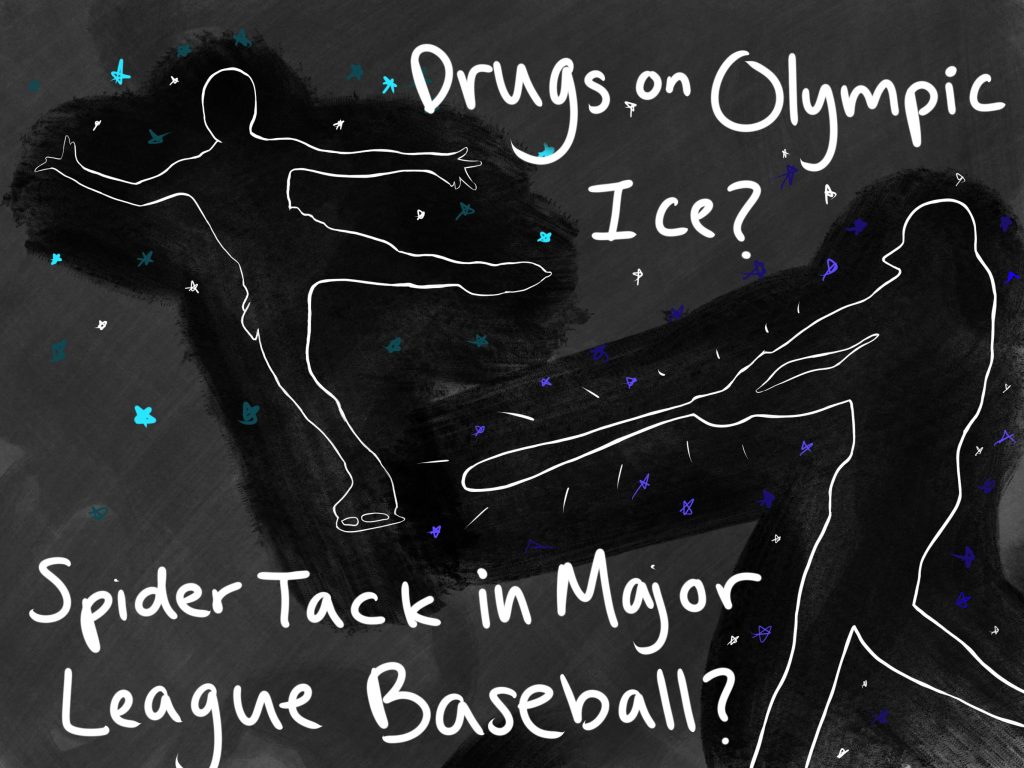In recent months sporting events have not only provided the thrill of the games, the fight of the underdog, and the opportunity to cheer on old champions, sports have also challenged viewers to consider the underlying political and social impact surrounding supporters and participants.
This year, instead of focusing on the medal count, talk of the Olympics seemed to go from one controversy to another. NPR reported that the Beijing Olympics Games drew the lowest viewership in NBC broadcast history. Some say that much of the lack of enthusiasm over the Games was due to controversies surrounding the event. While the Olympics are not by definition a political event, boycotts and politicized statements about participating countries and athletes have increased in recent years. Statements and protests related to human rights violations by China were at the forefront of issues raised by the 2022 Olympics. The U.S.A. and some of its allies staged a diplomatic boycott of the games (government officials did not attend), due to alleged crimes against humanity by China. This is not the first time for such a diplomatic boycott. President Obama and (at the time) Vice President Biden did not attend the Olympic games in Sochi, Russia in protest of restrictions on gay rights in Russia. In 1980, 60 countries boycotted the games in Moscow in response to Russia’s invasion of Afghanistan.
In addition to these official protests, some have raised concerns that the placement of the 2022 Olympics represented a trend towards pay-to-play, or at least pay-to-host, the event, with China and Russia being some of the few countries that could truly compete in the hosting battle. Other controversies involved drug testing and use. Kamila Valieva, a 15 year old Russian figure skater failed a drug test during the Olympics. Despite having trimetazidine in her system, a banned substance, Kamila was still allowed to skate. This exception was only a year after Sha’Carri Richardson, a US runner, was prohibited from competing in the summer Olympics in Japan for use of marijuana. The difference is marijuana is not considered performance-enhancing (but is still banned) and trimetazidine is performance-enhancing. This double standard has not been clearly explained and has put the International Olympic Committee under fire.
The question of citizenship also tainted the Olympics luster. While many athletes choose to compete for the country of their origin or their parent’s origin, their patriotism is seldom questioned. Many of these athletes are praised for trying to raise standards in locations where the sport is not well represented, especially if they have longstanding ties to their native land. Who can argue against Giannis Antetokounmpo playing on the Greek national team, the country where he lived for 18 years until he was drafted into the NBA. This is his home, his language and his people. This year, questions were raised about whether China was making exceptions to its laws to build a stronger Olympic team. Two-time gold medalist Eileen Gu (born and raised in California) and many members of the men’s and women’s hockey teams for China, competed as Chinese nationals. The question is whether there were special exceptions made for these athletes. Chinese law does not permit dual citizenship. So, technically, these athletes had to renounce their citizenship in the US or other countries. No one can challenge the athletes’ decision to compete for a country that is part of their personal heritage. However, has China made a special exception just for these athletes that would not apply to the average person?
Does this type of controversy help inspire future Olympiads? One can argue it does help create more conscientious future athletes, athletes who realize that their opinions and participation may mean more than their two minutes on the track. On other fronts it may open the door for expansion of views on citizenship in places where these issues were not previously challenged. And you thought the Winter Olympics were boring!
Don’t worry, sports controversies haven’t stopped with the Olympics. You should have enjoyed the drama over the Baseball Hall of Fall, which omitted Roger Clemens (7 time Cy Young winner) and Barry Bonds (7 times MVP), while others have been admitted in the past to the Hall of Fame despite their activities as a player or management during the doping scandals. Soccer fans are now waiting to see how Russia’s invasion of Ukraine will impact the World Cup games, or even more critically, Chelsea F.C.’s ownership. Yes, sports is not without drama, but that is part of its enjoyment – the game, the people, the stories. Enjoy watching!
Elisha de Silva
staff writer

